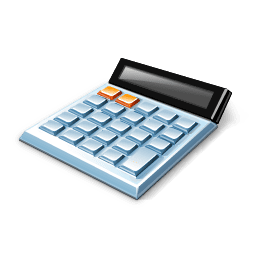How To Compile Your Own Odds

Being able to compile your own odds is one of the key steps to being a successful punter. All of the profiting gamblers I’ve ever met or have indeed read about price up events for themselves and stress the importance of doing so. This article takes a look at why it is very useful to compile odds, and how it can be achieved.
Article Contents
Who compiles odds?
Many people associate odds compiling and the pricing up of events as practices carried out solely by bookmakers or the people bookmakers employ to do so – often known as ‘odds compilers’.
The bookmaker forms a market by compiling a set of odds and the punter comes along and places their bet. The majority of punters are happy to accept whatever odds are offered on a particular market and place their bets without thinking too much of it, and for much of the betting world this is how it goes.
But of course, as with many things, there are a few diamonds in the rough, a small percentage of punters out there who aren’t willing to conform to this normality. These are the shrewd punters who make that extra effort to tilt the scales in their favour by compiling their own odds. In doing so this type of punter uses their own odds in comparison with the odds set by the bookmaker in order to find and exploit good value.
Why compile our own odds?
If you’re serious about making a success of your punting efforts then compiling your own odds is something you really ought to be doing. For you can be sure, at least to some degree, that the successful minority are indeed compiling their own sets of odds.
To some it might seem a bit long winded and perhaps even unnecessary to compile your own set of odds for each market you want to bet on, but the reality is – as with almost everything in life – to get results you have to put the work in. Pricing up events is an essential part of the work carried out by the serious punter.
The main advantage of pricing up events is that it allows the punter to compare their own prices with those available with the bookmakers or on the exchange.
What do you need to price up?

It is important to note that although you don’t need to be a particularly gifted mathematician to compile your own odds, you will need a strong knowledge of the event you’re planning to price up. For example if you’ve only got a beginners knowledge of racing then compiling your own odds will be pretty pointless as you will likely be hugely inaccurate. So first off make sure you are thoroughly educated in the sport you’re going to bet on.
How do you compile your own odds?
Firstly you need to note that all odds should be converted into percentages and then summed for all possible outcomes. For example if a particular horse has a 90% chance of winning a race the odds of the horse need to reflect this percentage.
Converting odds into percentages is a fairly simple exercise, all you have to do is divide 100 by the odds themselves when dealing with decimal odds or divide 100 by the odds and add 1 when dealing with fractional odds. For example a 2.5 shot on Betfair represents a 40% share of the market (100/2.5). Alternatively a 3/1 shot with a bookmaker represents 25% of the market (100/4+1).
Pricing up a simple football market:
Let’s use a simple win/draw/win football market example to put this into practice. We’ll imagine that top four chasing, Tottenham are travelling to face struggling, Newcastle. We’ll start by looking at the relative home and away form of each side. To keep the example simple let’s look at Newcastle’s last 10 home games and Tottenham’s last 10 away games.
Newcastle last 10 home games = Won 3, lost 4 and drawn 3
Tottenham last 10 away games = Won 3, lost 3 and drawn 4
What we now need to do is use these figures to determine the odds on a home win, away win and the draw.
To get a Newcastle win we add their 3 home wins to Tottenham’s 3 way losses = 6
To get a price for the draw we add 3 Newcastle draws to the 4 Tottenham draws = 7
To get Tottenham’s price we add their 3 away wins to Newcastle’s 4 losses = 7
This leaves us with the following: Newcastle 6, Draw 7 and Tottenham 7. In order to get the percentage chances from this all we do is divide each number by the total number of matches sampled. So in this case 20.
Newcastle percentage = 6/20 = 30%
Tottenham percentage = 7/20 = 35%
Draw = 7/20 = 35%
As discussed above all we do now is simply divide 100 by the percentage figure in order to express the chances of each team as odds.
Newcastle – 100/30 = 3.33
Tottenham – 100/35 = 2.85
Draw – 100/35 = 2.85
We have now priced the win/draw/win market up as; 3.33 for a home win and 2.85 for both a draw and an away victory. Let’s assume that you feel Tottenham are much the stronger team and you expect them to win the game; however, the price available is only 2.65. You wouldn’t bet an away win at these odds simply because they are lower than the odds you have calculated yourself (your own odds being the ones you believe to be the true representation). Betting on a price below this would represent a bad value bet. On the other hand let’s imagine that you could back Tottenham to win at 3.00. At these odds Tottenham would be a better bet and would indeed represent good value.
Of course using just a sample of each teams’ relevant home/away form is quite a simple example and there are of course plenty of other factors you can consider when pricing up a game such as this. For example you may wish to consider a longer streak of games, perhaps 20. You can also consider both the home and away form of each side rather than just one or the other. Considering how the teams fared against similar opposition is also something that is recommended.
Pricing up a horse race –

As for the actual pricing up of the event itself, then this is pretty much the same as that which is discussed above. It is important to price the race to 100% and assign a percentage figure to each horse in the race.
Keeping things simple, let’s say that having analysed a three runner race you have compiled odds on the three runners to 100% and your prices show: 2.00 (50%), 4.00 (25%) and 4.00 (25%). By these calculations you believe that the favourite should be an even money shot and therefore has a 50% chance of winning. However, the actual prices available are: 2.50 (40%), 3.00 (33.3%) and 3.50 (28.6%). If this were to be the case – assuming you were right in your analysis – the value would lie in betting the favourite at a price of 2.00. This is simply because judging by your own prices the horse has a 10% greater chance of winning the race than the odds available suggest.
There are a lot of factors to consider when pricing up a race, so as a basic starting point it is advised that when beginning to do so you focus on smaller field events – probably 8 runners or less. Any more can become quite a headache, even for the more experienced odds compiler! The best thing to do before attempting to price up a horse race is to simply know your stuff! Learn about the different aspects of analysing racing and race form, there is tons of information out there, most of which is readily available at the click of a button. Read up on everything you can regarding the best ways to look at races and just generally learn as much as possible!
The benefits of compiling your own odds
As we can see from both the racing and football examples above, the reason punters would choose to price up events for themselves is that it helps to both identify and exploit value. Of course “value” or “true odds” can be pretty vague terms, after all despite what some people may say, whether or not a selection represents good or bad value is never really more than matter of opinion, an opinion that is only proved right or wrong after the event has finished.
There is no doubt that being able to compile your own odds – using them as a comparison with those that are available on betting exchanges or with bookmakers – is an invaluable skill when aiming to be successful as a punter. Being able to do this though is nowhere near as useful as being able to do it correctly! This comes from hard work and knowing your stuff.
The bottom line is this; work hard, learn all there is to learn, practice compiling your own odds and through a combination of having an expert understanding of betting on your sport and the ability to compile your own odds you will give yourself an edge over the majority of the betting world.
-----------------------------------------------------------------------
Want to see HOW we make Correct Score Trading Profits Like This?

Check out our FREE Correct Score Trading ebook while it is still availableand get it all explained.
Price: FREE
Just tell us where to email it to...
CLICK HERE TO DOWNLOAD NOW!-----------------------------------------------------------------------

